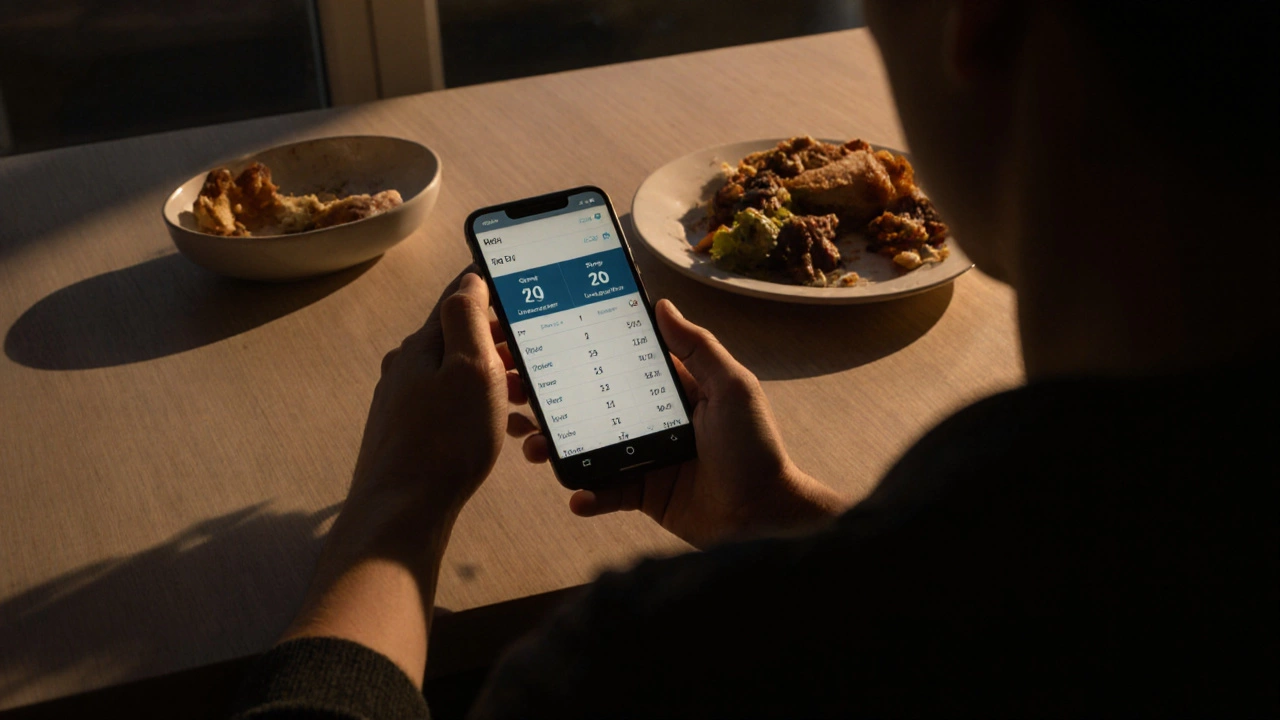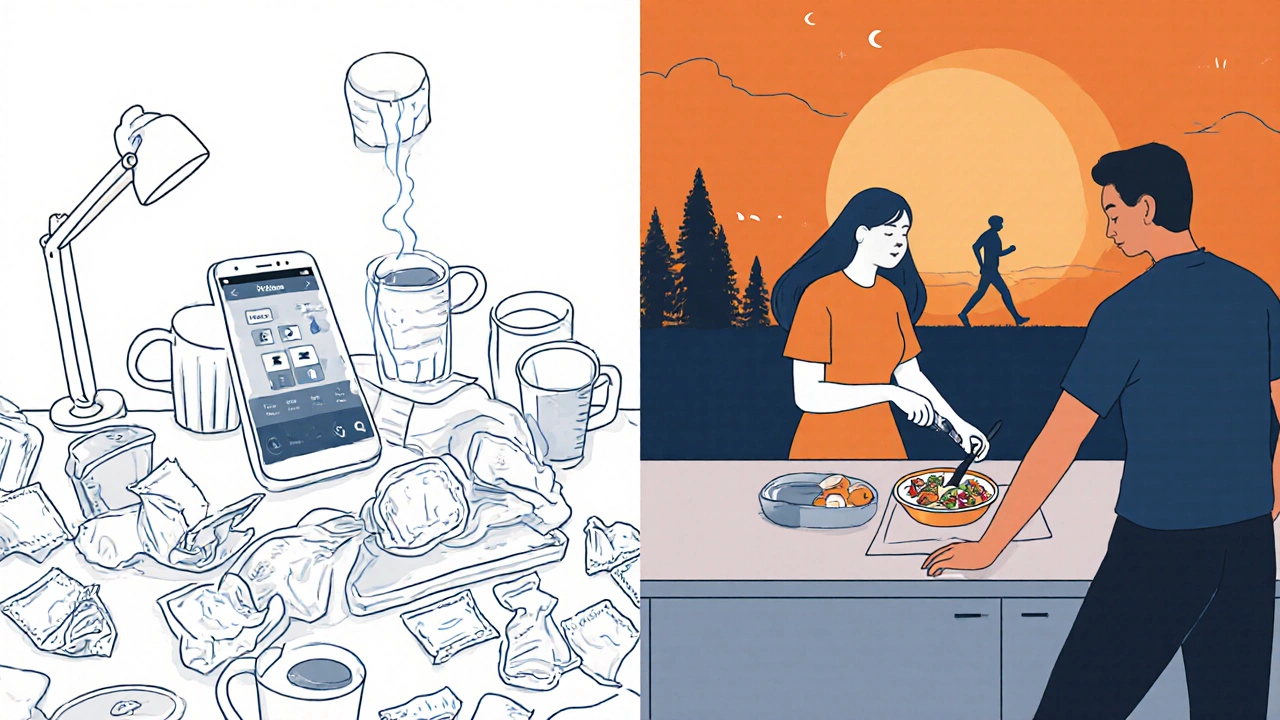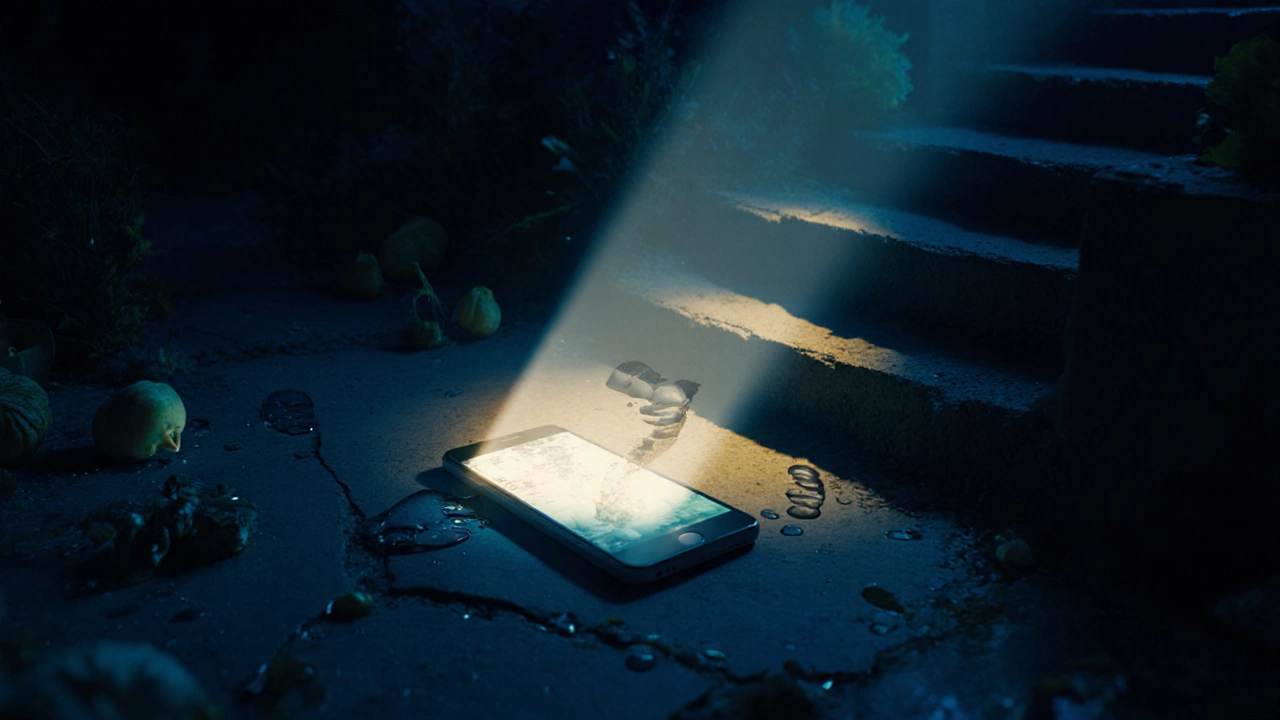
Based on the article: Apps work when they help you change behavior, not just track data.
Enter your details above to see realistic outcomes based on behavior changes from the article.
This calculator shows realistic outcomes when you change your habits—not just track them:
1-2 pounds per week is sustainable long-term. Faster loss often leads to rebound.
Small changes like walking 10 minutes after dinner or swapping soda for water make a difference.
Your app is a mirror—not a coach. Track to spot patterns, then change behavior.
Millions of people download fitness apps hoping they’ll be the magic key to losing weight. But after weeks of logging meals, tracking steps, and staring at progress charts, many wonder: do fitness apps help you lose weight? The answer isn’t yes or no-it’s more like, ‘It depends on how you use them.’
Apps don’t force you to skip dessert. They don’t make you get up at 5 a.m. for a workout. They just show you what you’re already doing. If you’re eating 3,000 calories a day and logging it, the app won’t stop you. It’ll just say, ‘You’re 1,200 over your goal.’ That’s not motivation-that’s a report card you didn’t ask for.
One user, Mark, lost 28 pounds over 10 months using a popular fitness app. He didn’t change his app. He changed his routine. He started cooking simple meals on weekends. He stopped buying soda. He walked after dinner-no matter how tired he was. The app didn’t make him do it. It just helped him see that he was doing it.
Apps also create a false sense of progress. Logging a 30-minute walk feels like a win-even if you then eat a whole pizza. You’ve ‘earned’ it, right? Wrong. Calories burned don’t cancel out calories consumed. That’s not science-it’s wishful thinking.

| Feature | Helps With Weight Loss? | Why |
|---|---|---|
| Calorie tracking | Yes | Builds awareness of portion sizes and hidden sugars. People who track calories eat about 15% less on average. |
| Step counting | Sometimes | Only helps if you’re normally sedentary. Walking 5,000 to 10,000 steps daily burns 200-400 calories-useful, but not enough alone. |
| Workout videos | Depends | Great for consistency if you struggle to get to the gym. But if you don’t push yourself during the workout, you won’t burn enough. |
| Community challenges | Maybe | Competition can help short-term, but long-term success comes from internal motivation, not leaderboard rankings. |
| Automated meal plans | No | Generic plans ignore your preferences, budget, and lifestyle. They often lead to frustration and quitting. |
None of these apps are magic. But they’re better than most because they encourage reflection, not just recording.

A 2024 survey by the National Eating Disorders Association found that 37% of users who tracked food daily reported increased anxiety around eating. The app didn’t cause the issue-but it amplified it. If you’re feeling guilt, shame, or control issues because of your app, it’s time to step back.
Weight loss isn’t about perfect logs or hitting 10,000 steps every day. It’s about building a life where healthy choices feel normal-not forced.
Apps can be useful tools. But they’re not the solution. You are.
No. You can’t out-exercise a bad diet. Fitness apps track calories burned, but most people burn far fewer calories than they think. Losing weight requires a calorie deficit, which mostly comes from eating less-not burning more. An app won’t change what’s on your plate unless you do.
For basic tracking, yes. Free apps like MyFitnessPal and Lose It! have the same core features as paid ones: calorie logging, step tracking, and food databases. Paid apps like Noom or Fitbit Premium add coaching, psychology-based lessons, or personalized plans-but those only help if you use them. Most people don’t need to pay to lose weight. They need to change habits.
If you’re consistent with your habits, you’ll start noticing changes in 3-4 weeks. Weight loss might be slow-0.5 to 1 pound per week-but that’s sustainable. Apps that promise 10 pounds in 10 days usually lead to rebound weight gain. Real progress takes time, and real apps reflect that.
Not necessarily. Tracking daily is helpful for the first 4-6 weeks to learn portion sizes and hidden sugars. After that, try tracking every other day or just on weekends. The goal isn’t perfection-it’s awareness. Once you know what a 300-calorie snack looks like, you won’t need to log it forever.
Then don’t use them. Many people lose weight without any app at all. Use a notebook, talk to a friend, or just pay attention to how you feel after eating. The best tool is the one you’ll actually use. If an app feels like a chore, it’s working against you.